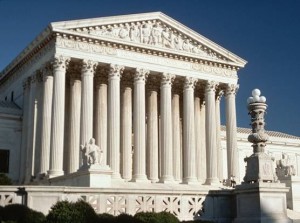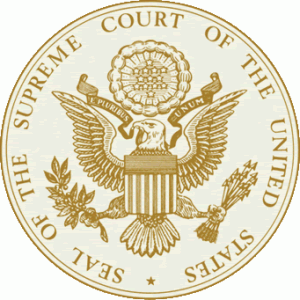“GPS Jones” Decision: Not What It Seems
If you follow privacy law, you’ve probably heard about the case of U.S. v. Jones. This American decision, issued last week, is the US Supreme Court’s latest take on technology and privacy. A 9-0 decision, the justices got to the same place by different routes. Unfortunately, for a GPS-related decision, it turns out not to be a final destination but a waypoint.
As for the facts, Antoine Jones drove around Washington, DC and Maryland in a Jeep with a small GPS tracker installed on the vehicle and monitored over a 28-day period. Interestingly, given this is a 4th Amendment case, a warrant had been issued but expired before installation of the device. The tracking results provided evidence that led to the conviction of Mr. Jones on charges of conspiracy to traffic drugs.
The initial press reports simply suggest that this decision — with a focus on police use of a GPS tracking device — was a big win for privacy. Privacy over technology, for a change. In the interest of full disclosure, I read those news reports and thought as much – then I looked at the opinions.
 When you check the scorecard there are nine justices, three basic arguments and three opinions, one majority opinion by Mr. Justices Scalia; and two separate concurring opinions by Justices Alito and Sotomayor. The treatment of the arguments are at the heart of Jones and here the press reports may result in a misinterpretation of the decision.
When you check the scorecard there are nine justices, three basic arguments and three opinions, one majority opinion by Mr. Justices Scalia; and two separate concurring opinions by Justices Alito and Sotomayor. The treatment of the arguments are at the heart of Jones and here the press reports may result in a misinterpretation of the decision.
The arguments? Essentially, from the Response Brief, they are:
1. The act of installing the GPS device is a search;
2. The act of tracking is a search; and
3. If tracking is not a search then tracking for an extended period of time is a search.
The significance of a “search” is that a warrant would be required so as to not violate the suspect’s 4th Amendment rights. Now I admit we’re way down in the legal weeds here but I read the Scalia decision – with 5 justices supporting it — as requiring a combination of Arguments 1 and 2 plus a property/trespass violation. Believe it or not, it’s found in footnote 5:
“A trespass on “houses” or “effects,” or a Katz invasion of privacy, is not alone a search unless it is done to obtain information; and the obtaining of information is not alone a search unless it is achieved by such a trespass or invasion of privacy.”
Four justices supporting Mr. Justice Alito’s decision explicitly rejected the first argument (see bottom of page 2 of Alito decision):
“It is clear that the attachment of the GPS device was not itself a search; if the device had not functioned or if the officers had not used it, no information would have been obtained. And the Court does not contend that the use of the device constituted a search either.
The majority supporting Scalia’s opinion didn’t accept it either.
Privacy advocates would want a clear statement that Argument 2 governs. They certainly didn’t get it. Argument 2 was rejected at page 13 of Alito’s decision:
“The best that we can do in this case is to apply existing Fourth Amendment doctrine and to ask whether the use of GPS tracking in a particular case involved a degree of intrusion that a reasonable person would not have anticipated. Under this approach, relatively short-term monitoring of a person’s movements on public streets accords with expectations of privacy that our society has recognized as reasonable.”
 In case you missed that, tracking is ok. As for Argument 3 (lengthy tracking), they left that for another day.
In case you missed that, tracking is ok. As for Argument 3 (lengthy tracking), they left that for another day.
Madame Justice Sotomayor was the only Justice that wanted to look at the bigger picture in Argument 2. At page 3 of her opinion (cites omitted):
In cases involving even short-term monitoring, some unique attributes of GPS surveillance relevant to the Katz analysis will require particular attention. GPS monitoring generates a precise, comprehensive record of a person’s public movements that reflects a wealth of detail about her familial, political, professional, religious, and sexual associations…The Government can store such records and efficiently mine them for information years into the future…And because GPS monitoring is cheap in comparison to conventional surveillance techniques and, by design, proceeds surreptitiously, it evades the ordinary checks that constrain abusive law enforcement practices: “limited police resources and community hostility.”
To recap, putting a GPS device on a vehicle, by itself, is not a search and short term tracking is ok as long as there is no violation of property rights.
Jones may have won in this case but from the language found in the opinions it’s arguable that “privacy” didn’t – at least not in this round.


